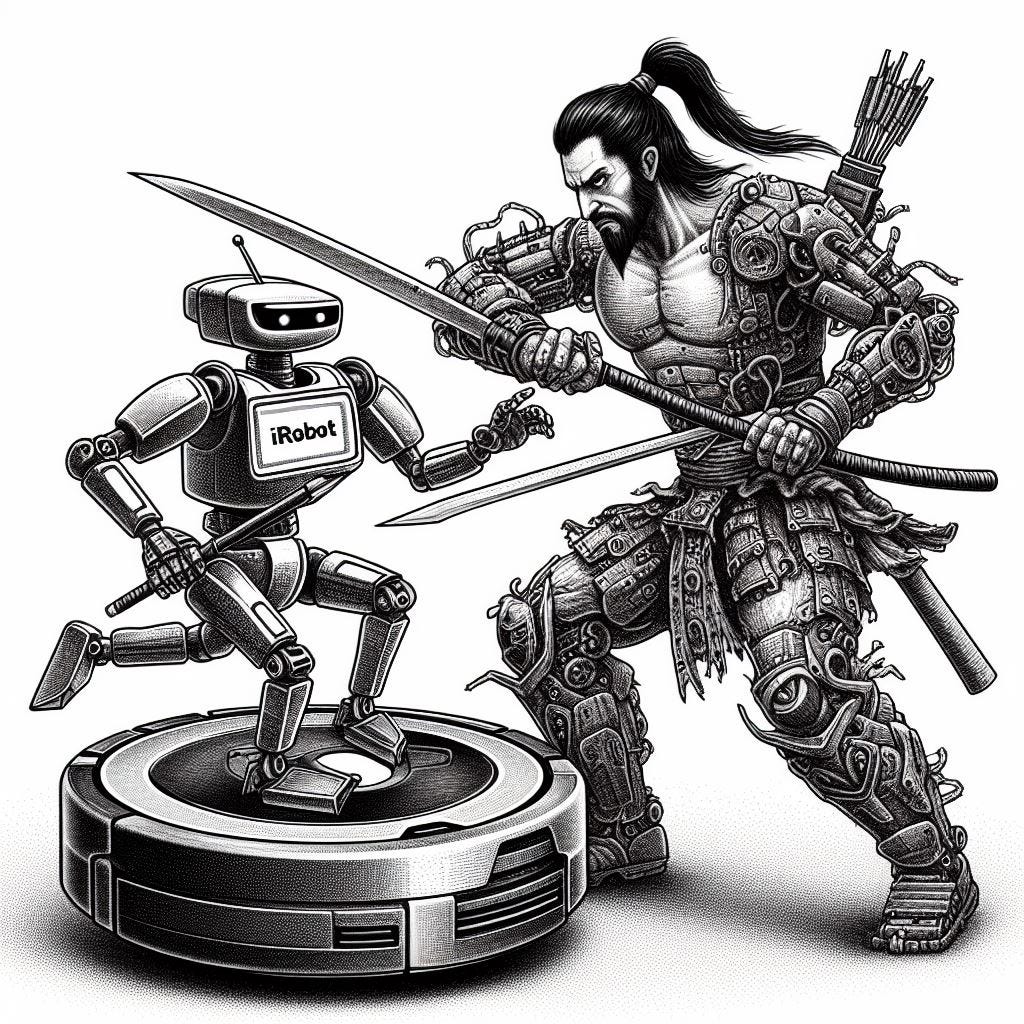To protect a "concept", EU regulator seems to have failed its constituents
After years of negotiation, EU regulator and US progressives won against a deal between Amazon and iRobot. The future of the firm producing the famous cleaning assistants is drastically weakened.
The digital geostrategy has a new page. The recent news that iRobot, the maker of the popular Roomba smart vacuum, is laying off nearly a third of its staff and moving some of its engineering functions to lower-cost regions is a stark reminder of how regulators are failing to protect the interest of their own countries. This exemple is coming from Europe but all the critics and voices were strongly promoted in the USA, including the strong comments of Elysabeth Warren.
Amazon was expected to acquire iRobot for $1.7 billion since August 2022, despite the opposition of many progressives and consumer advocates who warned that the deal would harm competition, innovation, and privacy. They argued 2 main critics:
that Amazon would use its dominant position in the online marketplace to favor its own products over those of its rivals,
that it would exploit the data collected by the Roomba to spy on American and European homes and target them with more ads and services.
Amazon claimed that the deal would benefit consumers by lowering prices and improving quality, and that they would monitor the market for any signs of anticompetitive behavior. They also quickly dismissed the privacy concerns as unfounded and exaggerated, saying that consumers could opt out of data sharing and that Amazon had a strong record of protecting user data.
While the deal moved forward on the US front, the EU regulators increased the list of requirements. Amazon finally left the table of negotiation and canceled the deal with a payment of $94 million of compensation for iRobot.
Importunely in the last days of January 2024, the iRobot announced layoff of 30% of its work force and continue offshoring its engineering functions. iRobot is not only cutting costs, it is also means that iRobot will have less incentive and ability to innovate and improve its products, and that it will have less accountability and transparency over its data practices. This will ultimately hurt the US and EU consumers who rely on its products for convenience and security.
The irony is that while regulators are embracing the protection of the free market as a religion, they are forgetting to protect their own citizens’ interests… which was the initial purpose of the free market
There is always a winner in those games. While the EU parlement has been involved in a series of scandales involving senior leader getting money from foreign countries, the integrity of any decision are now weakened. This decision is surely handing over the advantage to iRobot biggest rival from China. China has been investing heavily in the development and deployment of artificial intelligence, robotics, and other emerging technologies, while also imposing strict rules and standards on its domestic and foreign tech companies. China has also been expanding its global influence and presence through initiatives like the Belt and Road, the Digital Silk Road, and the China Standards 2035.
The unfortunate sarcastic conclusion highlights that breaking the deal made the 2 critics even worst. iRobot weakened position benefits directly to the numerous challengers coming mainly (if not exclusively) from China. The data collected are offshored without controls and normes. The usage is undisclosed and won’t be under the scrutiny of the regulators.
China is not only competing with the US in the tech sector, but also challenging its values and norms. China is alleged promoting a model of digital authoritarianism that uses technology to monitor, control, and manipulate its citizens and other countries.
EU, US and its regulators need to wake up and realize that they are not only failing to protect their consumers, but also losing their edge and leadership in the tech world. The need to adopt a more proactive and holistic approach to regulating big tech, one that balances the interests of innovation, competition, and privacy. The need to cooperate and coordinate among allies and partners to counter growing hostile influence and challenge its alternative vision. Otherwise, we can expect to see the western market outsmarted and outplayed by China in the game of tech supremacy.



